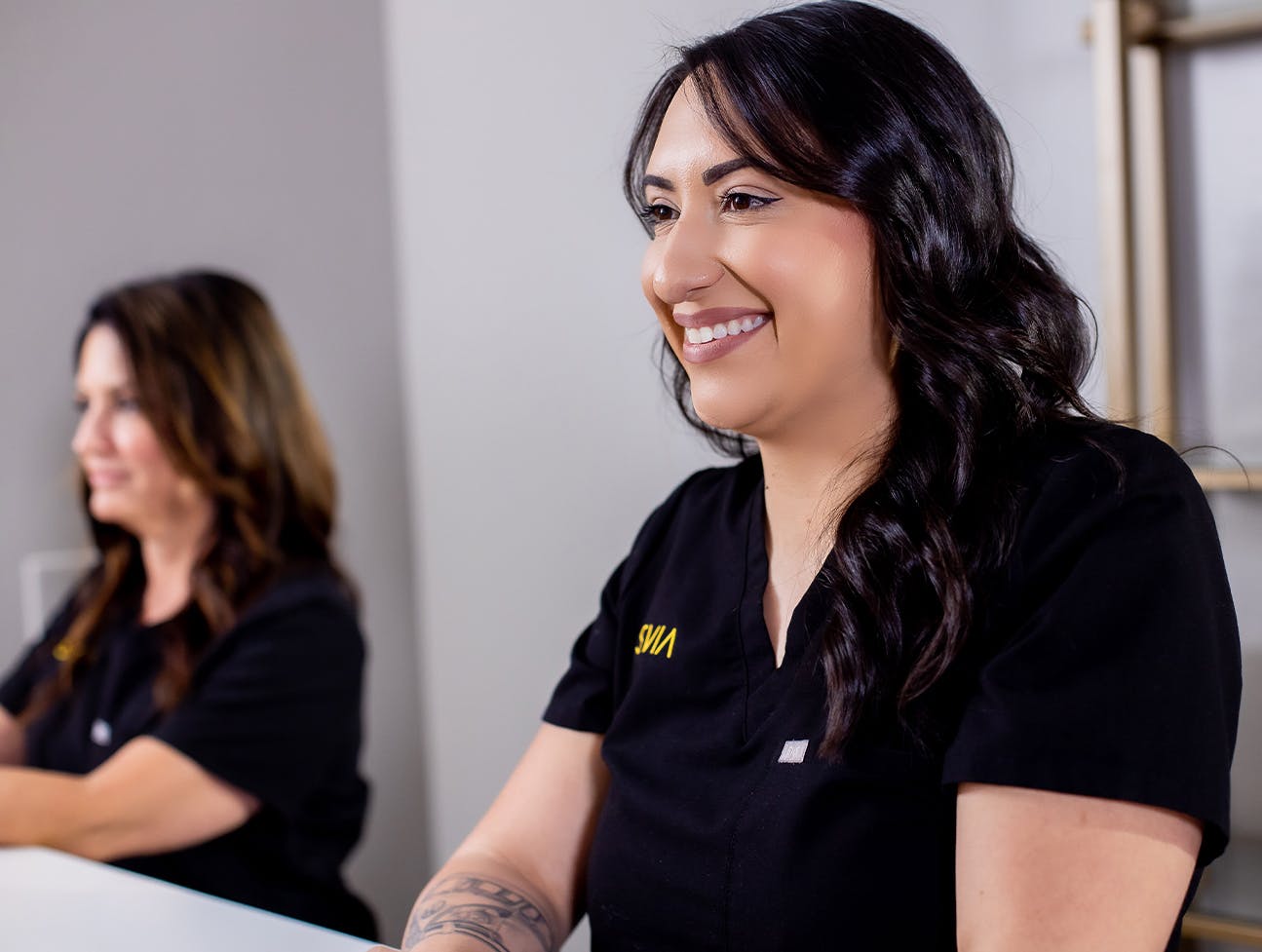At the Silicon Valley Institute for Aesthetics, we strive to provide our patients with as much information as possible. This list represents some of the questions we see most frequently as we work with our patients.
Our Most Frequently Asked Questions
Take a look at some of the most common queries we receive here at the Silicon Valley Institute for Aesthetics. We take an especially personal approach to our work, and transparency is a very important aspect of our mission statement. We're here to answer any question you might have, so we can set your mind at ease and ensure that you experience total peace of mind as you look forward to your exceptional results.
FAQs
What Is Plastic Surgery?
How does someone become a plastic surgeon?
What is cosmetic surgery?
Is there a difference between a cosmetic surgeon and a plastic surgeon?
Why is proper surgical training important?
What is an aesthetic fellowship in plastic surgery, and why is that important?
Can anyone guarantee a perfect result from an operation?
Do you charge a consultation fee?
What about second opinions, scar consultations, and hybrid (insurance mixed with cosmetic) visits?
What Is Plastic Surgery?
Plastic surgery is a surgical sub-specialty that deals with the healing and restoration of form and function in the human body. Derived from the Greek word “plastikos” (meaning “to mold or to shape”), plastic surgeons are masters of anatomy with the ability to operate on any part of the body.
The specialty has evolved to include aesthetic or cosmetic surgery, which specifically addresses rejuvenation and the restoration of a youthful appearance. This is in addition to the traditional reconstructive role a plastic surgeon plays in repairing injury, disfigurement, and scarring from trauma, disease, congenital defects, or cancer.
How does someone become a plastic surgeon?
Becoming a top plastic surgeon is a highly selective process. Becoming a physician requires four years of college, followed by four years of medical school. Following this, plastic surgeons usually train as general surgeons before applying for a fellowship in plastic surgery.
Plastic surgery training is highly competitive, with upwards of 50-100 applications for each position at the best training programs. Plastic surgeons may choose to complete an optional sub-specialty fellowship in aesthetics, craniofacial, hand, or microvascular surgery.
The application process for a sub-specialty fellowship program can be even more selective. For the best programs, 20 to 30 plastic surgeons may be competing for a single position. In total, a plastic surgeon may spend six to ten years training after medical school!
Both Dr. Jerome Liu and Dr. Tom Liu are fully-trained in plastic surgery and have both completed additional fellowship training in aesthetic surgery. They are also certified by the American Board of Plastic Surgery.
What is cosmetic surgery?
Aesthetic surgery, also known as cosmetic surgery, seeks to improve an individual’s appearance. These types of operations most often involve the nose, ears, face, forehead, eyelids, breasts, abdomen, hips, and thighs. Although the terms “aesthetic” and “cosmetic” are often used interchangeably, they are not synonymous. The term “aesthetic” has been widely adopted by the plastic surgery community to differentiate the specialty from other non-plastic surgery providers who perform “cosmetic surgery”.
Is there a difference between a cosmetic surgeon and a plastic surgeon?
All plastic surgeons are trained in cosmetic surgery, but not all “cosmetic surgeons” are plastic surgeons. In fact, many “cosmetic surgeons” are actually not surgeons at all (and have never completed a surgical residency). Many “cosmetic surgeons” or “cosmetic practitioners” have received their core training in a medical specialty such as emergency medicine, anesthesiology, family practice, radiology, or dermatology.
If you still would like to learn more, don’t hesitate to ask your plastic surgeon to sit down and explain the difference. A genuine plastic surgeon will never shy away from explaining the difference or clarifying their training.
Why is proper surgical training important?
Wielding a knife is only a small part of being a surgeon. Proper surgical training through an accredited surgical residency program cultivates the maturity, judgment, medical background, and ethical values that are important to being a surgeon.
What is an aesthetic fellowship in plastic surgery, and why is that important?
Although all plastic surgeons are trained in aesthetic surgery, some plastic surgeons have dedicated themselves to additional specialized training in a particular area of plastic surgery.
Cosmetic plastic surgery is a discipline within plastic surgery that specializes in cosmetic operations and procedures of the face, breasts, and body, such as breast augmentation and tummy tuck surgery.
A fellowship in aesthetic surgery provides additional training in the subtle but essential nuances of analysis, planning, and judgment for cosmetic surgery. In addition, aesthetic fellowships are often directed by world-renowned surgeons offering a unique opportunity to learn from the very best.
Can anyone guarantee a perfect result from an operation?
No. The healing process is different for each patient. As such, there are many factors that are beyond the surgeon’s control. Beyond the usual criteria of proper training, pedigree, and technical skill, choosing a surgeon that you feel comfortable with is the most important thing to improve your chances of a positive experience.
Both Dr. Jerome Liu and Dr. Tom Liu have gone to great lengths to refine their technical expertise and to train at the best institutions throughout the United States. More importantly, they will listen to your needs, provide an honest opinion, and cultivate the doctor-patient relationship.
Do you charge a consultation fee?
We charge a non-refundable $150 consultation fee for a cosmetic evaluation, which can then be applied to any surgery or injectable treatment. This fee allows us to block off the necessary time to provide our patients with the highest quality service, and we pride ourselves on our exceptional staff.
In the event of a no-show or cancellation within less than 24 hours, the fee will be forfeited. When you schedule a consultation, you can be assured that we will always have your interests at heart.
What about second opinions, scar consultations, and hybrid (insurance mixed with cosmetic) visits?
Sometimes patients desire a second opinion for cosmetic surgery performed elsewhere within the last 12 months. Since we did not perform the surgery, we charge a $500 consultation fee to cover the medical evaluation, review available operative notes, perform an examination, and render an opinion.
Similarly, for second opinions for non-surgical cosmetic procedures performed elsewhere within the last 12 months, we charge a $150 consultation fee to evaluate and recommend the best course of action. The $150 can be applied to future aesthetic injections.
There is a consult fee for the evaluation and management of any scar. The fee for scar consultation depends on the clinical history and circumstances, so please call in for further details. Prior to booking a scar consultation, we highly encourage sending photos so that we will be better able to help you.
Certain consultations may have both an insurance and a cosmetic component. The classification of whether a visit qualifies as a medical (insurance) visit or a cosmetic consultation is at the sole discretion of the physician. Medical visits will be billed to the insurance carrier, and the patient will be responsible for all deductibles, copays, and coinsurance.


